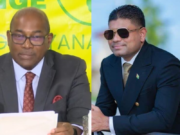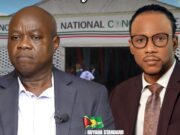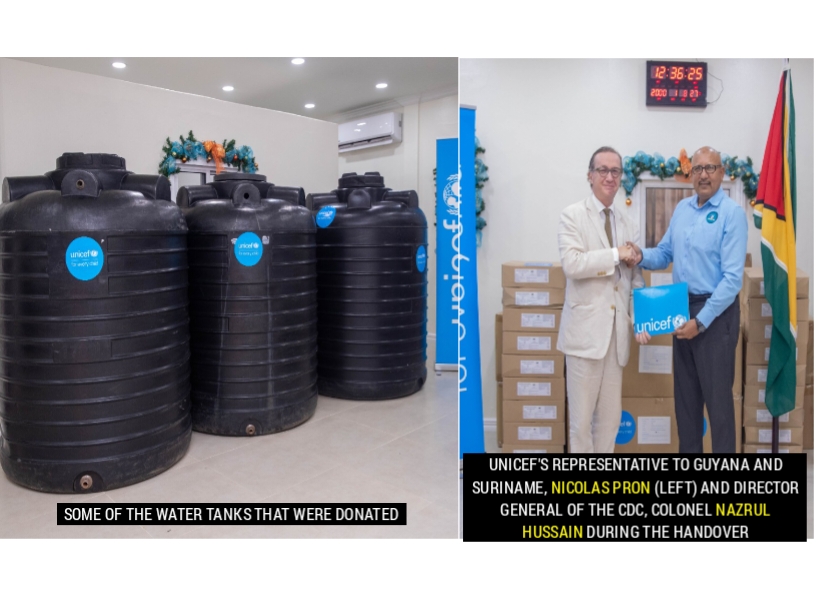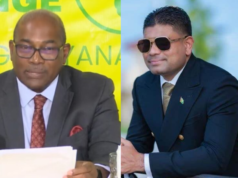UNICEF’s Representative to Guyana and Suriname, Nicolas Pron, today handed over 100 water tanks, 10,000 collapsible water containers, and two million water purification tablets, to the Civil Defence Commission (CDC) to support the body’s response to emergencies.
The supplies were procured as part of UNICEF’s Water, Sanitation and Hygiene (WASH) programme in Guyana and complements support to local authorities to increase the accessibility and availability of safe water in areas where people are in need.
“Against the backdrop of challenges such as climate change, which has resulted in more intense and increasingly frequent floods and droughts, UNICEF is committed to strengthening our partnership with the CDC to ensure that no child is left behind,” Pron said.
He noted that the supplies will support the response to disasters such as flooding and help to address other humanitarian needs of Guyanese as well as migrants.
“We know that access to safe drinking water, and related sanitation and hygiene services, has a direct positive impact on health, nutrition, learning abilities and several other key developmental factors, which can lead to better standards of living and ultimately benefit investment, economic growth and sustainable development,” the UNICEF Representative said.
Director General of the CDC, Colonel Nazrul Hussain, extended gratitude to UNICEF for the timely donation, on behalf of the Government and people of Guyana. He thanked the local office for partnering with the CDC to bring about awareness and contributing tangibly to the effort to deliver clean water.
The supplies were procured by UNICEF, with support from the US Department of State’s Bureau for Population, Refugees and Migration (USBPRM), at the request of the CDC as part of the longstanding cooperation between the two agencies. Each water tank has the capacity to hold 450 gallons of water while the collapsible water containers are UV resistant and, with the capacity to hold 10 litres of water each, are suitable for transport and storage of potable water, especially for domestic and household use in emergency situations.
The two million water purification tablets can treat 10 million litres of water.
UNICEF’s WASH programme in Guyana aims to strengthen the capacities of structures and partners at the national and decentralized levels to improve the development and implementation of child-sensitive climate and disaster risk reduction policies and programmes, and to provide equitable and sustainable access to low-carbon and climate-resilient WASH services. As part of the component to strengthen partners’ capacities for preparedness and humanitarian response, in June this year, 20 local WASH personnel were trained to address WASH needs in emergencies.













